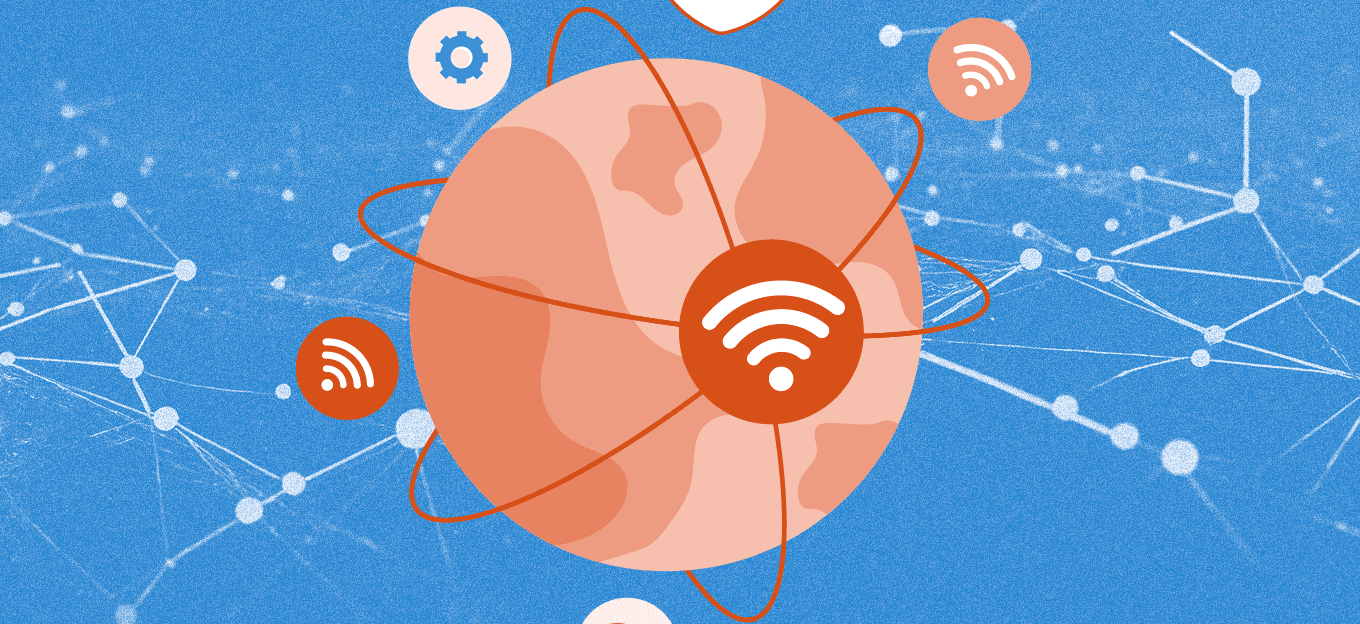The Role of AI in Shaping the Future of Mobile Application Development
The Role of AI in Shaping the Future of Mobile Application Development
- Last Updated: December 2, 2024
James Grills
- Last Updated: December 2, 2024



AI or Artificial Intelligence is the latest buzz in the tech world. It has, to a large extent, changed the future of mobile application development. It has the potential to revolutionize the development of mobile applications. It is a computer science technology that can develop human-like intelligence in machines. AI gives machines the ability to act, react & behave humanely.
The mobile applications that are developed with the aid of AI or AI-powered tools can provide a comprehensive, personalized experience to the users. Such mobile applications can understand the user's behavior, predict the user's action & adjust the look by sensing the mood of the users, and can establish a personal connection with them. It leads to an increase in user engagement resulting in memorable user experience & long-lasting user loyalty. The role of AI is to make future mobile applications more intelligent & user-centric.
AI-powered mobile applications lead to an increase in user engagement resulting in memorable user experience and long-lasting customer loyalty.
As per the International Data Corporation, the estimated spending on the AI system is expected to reach around $79.2 billion by 2022 as compared to $35.8 billion currently. This highlights that with each passing day, the role of AI in shaping the future of mobile application development is gaining more & more significance.
Below, we review the role of AI in shaping the future of Mobile Application Development.
Search Engine Optimization
Traditionally, the mobile application used to take input from the user either in the form of voice or text. So to search for any product, you must know its description or a keyword related to it. What if the user does not know how to describe what he is looking for, or he has no clue about what it is called? Now with the use of AI in mobile application development, this problem can be solved very easily.
With the use of AI, the technique of visual search can be incorporated in the mobile application during its development. Visual search is an AI-powered technique that recognizes images in context with the location of the device to provide the search result to the users. Mobile applications that are developed to support visual recognition, in addition to voice recognition, are bound to increase the conversion rate.
For example, the user comes across a product which he would love to buy, but he doesn't know what it is called? So, he can click a picture of the product & use it for searching. This image is recognized & processed by the AI-powered visual search in context with the location of the device. Relevant search results are shown to the users. Google lens is one of the examples of the visual search engine.
Automated Logical Reasoning
It means the ability of the machines to find solutions to complex problems. The use of AI in the development of mobile applications can develop this ability in the machines. Machines are capable of not only analyzing the user's preferences, likes, and dislikes but also of finding an appropriate solution. Such an application makes life easy for users.
Automation Levels Increase
With the use of AI, the developers can save on the cost of hiring teams that are deployed for doing tasks that are repetitive as well as time-consuming. AI helps in automating the tasks that can be done without any human input. This will make the process of developing mobile applications cost-effective, quick & less prone to human errors.
AI & IoT Amalgamation
Internet of things means the network of interconnected devices. Smart gadgets such as smartwatches, fitness bands, mobile phones, etc., are some of the examples. In today's world, a user is continuously connected to all such smart gadgets. These gadgets are functioning through a mobile application that uses AI-powered sensors & chips to understand the daily routine of the users. During the process of mobile application development, linking of AI with IoT can result in optimum utilization of existing resources.
Automatic Reply Function
The developers of the mobile applications can incorporate auto-reply feature powered by AI in the mobile application. A mobile application not powered by AI cannot communicate with the users, but the AI-powered mobile application can. It is a communication between the user & device. When the user sends a message, the device understands it with the help of AI & answers it accordingly. For example, Google has introduced an automatic reply feature in its Gmail application. It is known as a smart reply.
Highly Personalized User Experience
The developers should aim to develop a mobile application that can provide a highly personalized experience to its users. Providing personalized experience is not a one-time activity for a mobile application. It needs to provide a personalized experience to the users continually. This will take the user engagement & loyalty to new heights.
The content which is provided to the user shapes his experience. Exciting content will always wow the user. With the use of AI, developers can create the right kind of content. AI can analyze the user's behavior & understand his choices. For example, a fashion retailer mobile application can show suitable recommendations to the user based on his past choices.
Moreover, based on the understanding of the user's behavior, the mobile application can send him notifications about the offers or products that are relevant to him. Also, to make the experience more user-specific, the AI gives the user the flexibility to prioritize the features of the application based on his requirements & the frequency of use. As a result, the user will feel one to one connection with the mobile application that goes a long way in improving user engagement.
Enabling Real-Time Translation
The developers of the mobile application can incorporate the AI-powered translator in the mobile application. This will eliminate the need to install a separate application for language translation. No matter in which language the text input is given, the mobile application will be able to understand it. The input text is translated as soon as it is entered without any lag. The incorporation of such a tool in the mobile application will increase its reach across the globe.
Enhanced Security with Facial Recognition
Facial recognition techniques powered by AI is a security feature that is incorporated in almost all the mobile applications that are being developed. AI-powered face recognition used by Apple is so advanced that it can identify the correct face even with some facial changes like a beard. In the future development of mobile applications, the face recognition technology can be used not only for gaining access but also for the following:
- Facial recognition technology can be used to ensure that kids are restricted from seeing inappropriate advertisements.
- This technique can be used for the fraud detection method. As this technology becomes common, it substitutes the use of traditional login id & password for gaining access.
- Facial recognition can also be used in the medical field. It can be used to scan the faces of the patient for identifying the symptoms & diagnosing the disease.
AI-Powered Chatbots
Chatbots can be defined as robots for a chat. The chatbots are used to chat with the users in case of any problem or query. The developers should integrate chatbots in the mobile application to save on the cost of hiring a team of customer service executives. There are so many repetitive questions that are asked by the users like what is the opening time of the store, is this item in the stock, do you deliver to a particular address, etc. It makes no sense to hire someone to answer these questions daily. Instead, a chatbot should be integrated into mobile applications to answer all such questions. This will help in reducing the response time & delivers a pleasant user experience.
App Productivity
Mobile applications that are developed with the use of AI are far more productive, efficient, quick to respond & lag-free. Many AI-powered productivity tools, such as Microsoft 365, are used to deliver efficient & fast performance.
Conclusion
The role of AI in shaping the future of Mobile Application Development is undoubtedly very significant. It provides developers of the mobile application with plenty of opportunities to innovate & accelerate. With AI being rapidly used in the development of mobile applications, it has changed the way humans & machines used to communicate with each other. The role of AI in shaping the future of Mobile Application Development will continue to gain more significance & very soon AI will be the core foundation of mobile application development.
The Most Comprehensive IoT Newsletter for Enterprises
Showcasing the highest-quality content, resources, news, and insights from the world of the Internet of Things. Subscribe to remain informed and up-to-date.
New Podcast Episode

IoT in 2026: Trends and Predictions
Related Articles





